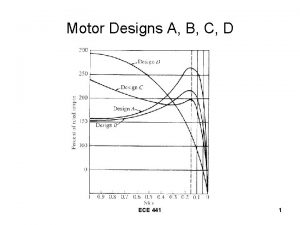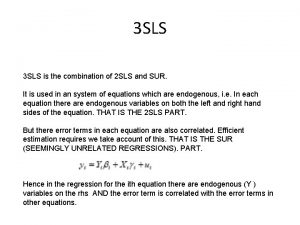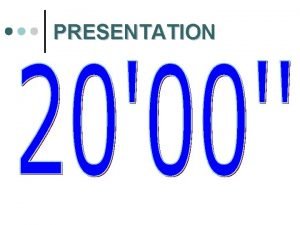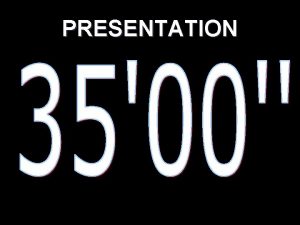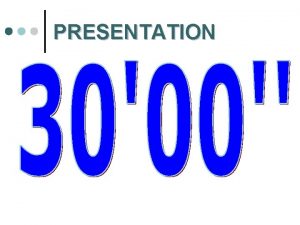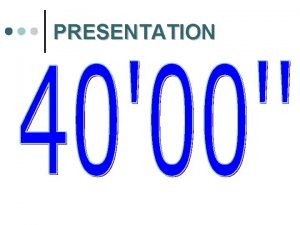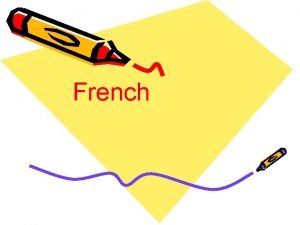SLS 441 Language Presentation French Shinya Jaeyoung and





















- Slides: 21

SLS 441 Language Presentation French Shinya, Jaeyoung and Sojung



Introduction (Valdman , 1976) French is an official language of 29 different countries. However, in 13 countries French is the only official language. AND… Did you know… that there is only one stop sign in the ENTIRE city of Paris?

Introduction (Valdman , 1976) ● French is the 6 th most widely spoken language in the world. ● There are over 220 million speakers of French in the world where 39. 87% of the French speaking population is Europe. ● French is a romance language just as Italian, Catalan, and Occitan is and they come from Latin root which roots from Indoeuropean.

French Vowel Chart Front (Valdman , 1976) Back High-mid Blue - Unrounded Pink - Rounded Low-mid Low

Nasal Vowels in French There are 4 nasal vowels in the French language and they are /ɛ/, /õ/, /ã/, and /œ/. belle (beautiful) leur (their) /bɛl/ bon (good) lent (slow) /bõ/ /lã/ /lœr/

French Consonants (Valdman , 1976) Bilabial Obstruent Stops Fricatives Labiodental Dental Velar Voiced /b/ /d/ /g/ Voiceless /p/ /t/ /k/ Voiced /v/ /z/ /ʒ/ Voiceless /f/ /s/ /ʃ/ Fricatives Resonants Palatal Nasals /j/ /m/ Lateral Semivowels /n/ R /ɲ/ /l/ /ɥ/ /j/ Pharyngal (uvular) /w/

Morphology (Valdman , 1976) Nouns ● usually occur in phrases with determiners and adjectives ● Number: singular / plural ● Gender : masculine (le, un) / feminine (la, une) e. g. le garçon la fille the boy the girl ● Most of the profession nouns are masculine. ● Names of languages are masculine. e. g. le français French

Morphology (Valdman , 1976) Nouns ● Gender : masculine (le, un) / feminine (la, une) ● Any noun ending in “-tion, -son and -té ” is feminine. e. g. la tension la liberté the tension the freedom ● Nouns ending in “-eur” are masculine. e. g. le docteur the doctor ● Any noun ending in /-is/ is feminine. e. g. une motrice [mɔtʀis] a diesel engine

Morphology (Valdman , 1976) Adjectives ● usually come before nouns ● invariable adjectives: have identical masculine and feminine forms ● variable adjectives: have distinct masculine and feminine forms e. g. Gender masculine feminine Number singular plural grands grandes Meaning “large, big”

Morphology (Valdman , 1976) Verbs ● Variation in the form of verbs is deteremined by person reference and tense-mood. o 6 persons: first, second, and third, singular and plural o 8 tenses: present, imperfect, present subjunctive, future, conditional, preterite, past subjunctive , and cauditicual ● French has MORE verb inflections than English (Savoy, 1993) e. g. être (to be) has 40 different forms http: //www. french-linguistics. co. uk/verbs/table/%EAtre. html#. VUCuevl_v. C 8

Syntax (tense) English French (SVO) -Present (Simple) -Progressve (Past/Present/Future) -Perfect tense(Past/Present/Future) -Future tense -Past tense -Present -Subjunctif -Cauditicual -Future(simple) -Future(interieur) -Past tense -Imperfect -Plus-que-parfait (literature only)

Basic syntax rule of French Singular Plural 1 st (I) Je parle. Nous parlous. [nu We 2 nd (you) Vous [vu [jɛ paʁl] I speak. paʁ. lɔ ] speak. Tu parles. parlez. [tu paʁl] You speak. paʁ. le]

Present Je parle français. = S V O French. I speak French. I am speaking I do speak French.

Past tense English: I speak. I spoke. French: Auxilary + Past particle. I spoke. S V Je ai [e/ɛ] parlé S aux I did spoke. I have spoken. PP

Imperfect (past) 1. 2. 3. 4. Make present singular sentense Chenging the singular verb to plural verb. Remove suffix e. g. )“-ous”, “-ez”, “-ent” Add another suffix e. g)“-ais/-ions/-iez/aient” 1. 2. 3. 4. Je perle. = I speak. Je perlons. = We speak Je perlais. = e. g) I used to speak. I was speaking. I would speak. I spoke.

Questions 1. Intonation Tu parles You speak 1. Question indicator Est-ce que tu Do French? 1. Inversion Perles-tu Speak you French? français? French? parles you français? Speak Est-ce que = Do

Conclusion Male dominant language. 100 females and a 1 male. = iles (plural of male)

If you didn’t already know. . . French toast…and fries. . . is not from France!

Bibliography Iwasaki, R. University of Hawaii at Manoa, Grad student in French major Savoy, J. (1993). Stemming of French words based on grammatical categories. JASIS, 44(1), 1 -9. Valdman, A. (1976). Introduction to French phonology and morphology. Newbury House Pub. https: //www. pinterest. com/pin/477311260476618205/













